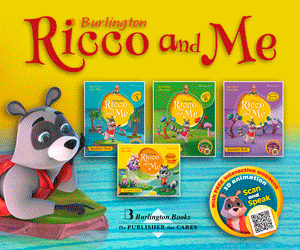I've been obsessed with languages for as long as I can remember. My family travelled a lot when I was young and my dad, a self-taught polyglot, would talk to everyone we met with apparent ease, confidently switching between languages. His abilities made a big impression on me, but I was intimidated by him, and he didn't encourage me to follow his lead.
I wasn't a natural language learner.
Aged 11, I made slow progress with French at school and almost gave it up. But things felt different when I took on German at university – loving many German writers in translation, I wanted to read them in their native tongue, and that's been my main motivation for learning new ones since. It can be a real revelation when you start to get it. Once I got German, I was hooked; French, Latin, Greek and Sanskrit quickly followed. The idea of having an encyclopedic mind – a comprehensive overview of the world – has always fascinated me, and acquiring languages seemed a good way of achieving that. By my 20s, I'd set my heart on devoting the rest of my life to learning as many as I could.
I'm often asked what the secret is, and whether some people have an aptitude for absorbing words and phrases. The truth is, predictably, it's down to endless hours of concentration – reading, studying and practising grammar, as well as my own technique called "shadowing", which involves walking briskly outdoors while listening to a recorded language and repeating it out loud. For five or six years, before I married and had children, I would study for 16 hours a day. I'd transcribe Irish, Persian, Hindi, Turkish, Swahili. Gradually, all these wonderful languages started to swim into focus, and ever increasing numbers of great works became accessible.
It's hard, but the rewards can be thrilling. When I started studying Spanish, for example, there was a moment when the living language – which I'd heard spoken around me when I was growing up – suddenly revealed itself to me, as if the wax was falling from my ears. That's the moment I crave – it comes to me quickly with European, Germanic or Romance languages – and it's very addictive. Something similar happened when I first went to Sweden – I'd never studied Swedish, but when I heard it spoken around me, it seemed to combine elements of languages I was familiar with.
All it took was three weeks and I was able to hold my own in complex conversations. That's as much as most people would want, but as far as I'm concerned, at that stage I'm still in the foothills. Climbing the mountain – achieving native fluency – is always going to take years.
Now, I can read about three dozen languages and speak most of them fluently, and I've studied many more. The more of them you know, the more you see how inter-related they are.
Exotic languages can be more of a challenge. I worked as a professor in Korea for eight years and it took almost a decade to get my Korean skills close to native level. We live in Singapore now, and at home I speak French with my sons, unless my Korean wife is there, in which case we'll use English. If we don't want the kids to understand everything we're saying, we use Korean.
I'm not a naturally forthcoming person and I used to be wary of talking to native speakers in their mother tongue. But to have the language come alive you have to speak it, to live it. Now, I find when I'm immersed in a language, I have another, more garrulous persona.
I think I'm much richer for that – it makes me more confident. If I were kidnapped tomorrow and dropped in an unknown region, I think there are only a few very remote areas I'd struggle to make myself understood.
I'm increasingly drawn to dead and endangered languages, and want to set up a polyglot academy where people with similar interests to mine can flourish. I've studied Esperanto, and although I can see the benefits of a world language, I do think the loss of so many quirks and colours would leave the world a less intriguing place. It would be like visiting a botanic garden where there was only one type of plant – that thought horrifies me.
theguardian





